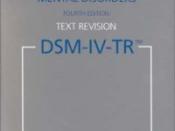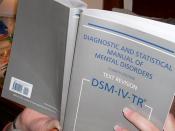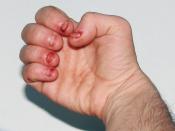Trichotillomania
Trichotillomania is a term coined by a French dermatologist in 1889 to describe the compulsive or irresistible urge that he saw in patients to pluck their hair out. The word trichotillomania is a Greek work meaning hair to pull, pluck, mania, frenzy, and madness. This is somewhat misleading as trichotillomania is referred to in psychiatry as an impulse disorder not a "madness" at all.
Impulse control disorders are characterized by the inability to control or resist the impulse to do something harmful to oneself or to someone else. A sufferer sometimes experiences a sense of pressure or tension before performing the behavior and can feel a release of tension afterwards. Sometimes people even express a feeling of pleasure after having performed the act.
Features of "trich" that fit the description of an impulse disorder include the inability to resist the urge to pull out one's hair and mounting tension before pulling and the feeling of relief afterward.
"Trich" is a neurological disorder not just a bad habit and can be managed with proper treatment. In the U.S. alone 2-4% of the population may suffer from chronic hair pulling (that's 8 million people). The average onset of "trich" is twelve (12) to thirteen (13) years old.
DSM-IV Definition:
More formally, the fourth edition of the American Pyschiatric Diagnostic and Statistical Manual of Mental Disorders define trichotillomania as:
*Recurrent pulling out of one's hair resulting in noticeable hair loss.
*An increasing sense of tension immediately before or when attempting to resist the behavior.
*Pleasure, gratification, or relief when pulling out one's hair.
*The disturbance is not better accounted for another mental disorder and is not due to a general medical condition (a dermatological condition).
*The disturbance causes clinically significant distress or impairment in social, occupational, or other important areas of functioning.



Hair snatcher
a few grammatical and word usage errors. try not to refer to youself in the first peron(me, I) because it tends to take away from the credability and the paper. Try and refine the way you present the list of sypmtons and whatever. organization helps with credibility. with a few tweaks here and there, this would be a much more solid paper. pretty good already though...
3 out of 3 people found this comment useful.